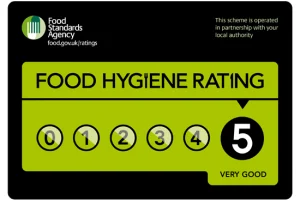HUNDREDS of millions of pounds will be needed to bring council houses in Cardiff up to standard.
Cardiff Council officials told members of the local authority’s communities and adult services scrutiny committee at a meeting on Monday, March 17, about the huge task it has on its hands to meet the Welsh Government’s Welsh Housing Quality Standards (WHQS) 2023.
The latest standard for council houses across the country sets out various energy efficiency and quality requirements which need to be met by a number of different deadlines ranging from 2024 to 2034.
Cardiff Council’s director of adults, housing and communities, Jane Thomas, told scrutiny committee members the energy efficiency targets are the “most challenging” demands of the WHQS, explaining how parts of it will be virtually impossible to achieve.
The methodology currently used to estimate the energy performance of homes in the UK is the standard assessment procedure (SAP).
An SAP rating is used to generate an energy performance certificate for homes – ranging from ‘A’, which is the highest efficiency rating, to ‘G’ which is the worst.
The WHQS requires council homes to be in the C EPC band, which is a SAP rating of 75, by March 31, 2030, and in the A EPC band (SAP rating 92) by March 31, 2034. In total, this would cost £866m.
The huge cost aside, Ms Thomas said there are other factors which would make the task difficult, adding: “Just to get a programme of works big enough to deliver that… we just would not be able to do that in the timescale.”
A council report on the WHQS demands states that by applying a range of energy efficiency measures, like external wall insulation and solar panels, 99.8% of council homes in Cardiff could achieve SAP 75, however this would cost approximately £351m.
It also goes on to state 0.2% of homes (25 properties) would not achieve the standard even if all current energy efficiency measures are applied.
On achieving the EPC band A target, Ms Thomas said: “With all of the work that we have identified that we could do… only 19% [homes] would even meet that level. However, 76% could achieve band B, but that would be at a cost of £515m.”
A member of the council’s community and adult services scrutiny committee, Cllr Peter Littlechild, asked if the council could face any penalties for not achieving its targets.
Whilst Ms Thomas said there was the potential for grant funding to be taken away if WHQS requirements weren’t met, there would be exceptions like if the council didn’t have enough money to carry them out.
Cardiff Council’s cabinet member for housing and communities, Councillor Lynda Thorne, said the Welsh Government is also asking housing associations and the other councils in Wales to meet the WHQS23 requirements, adding: “Are there enough skilled people… enough resources for all of those to be doing this at the same time?”
Cllr Thorne went on to question, “is it actually the most important thing for council housing in Wales?”, but added there is still a desire to improve the council’s housing stock.
She said: “We will achieve as much as we can, but it has to be in the interest of the tenants and the [housing revenue account].”
Echoing Cllr Thorne, Ms Thomas said: “We want to do this because a lot of this is really to the advantage of tenants… but at the moment, the money is a major issue.”
















